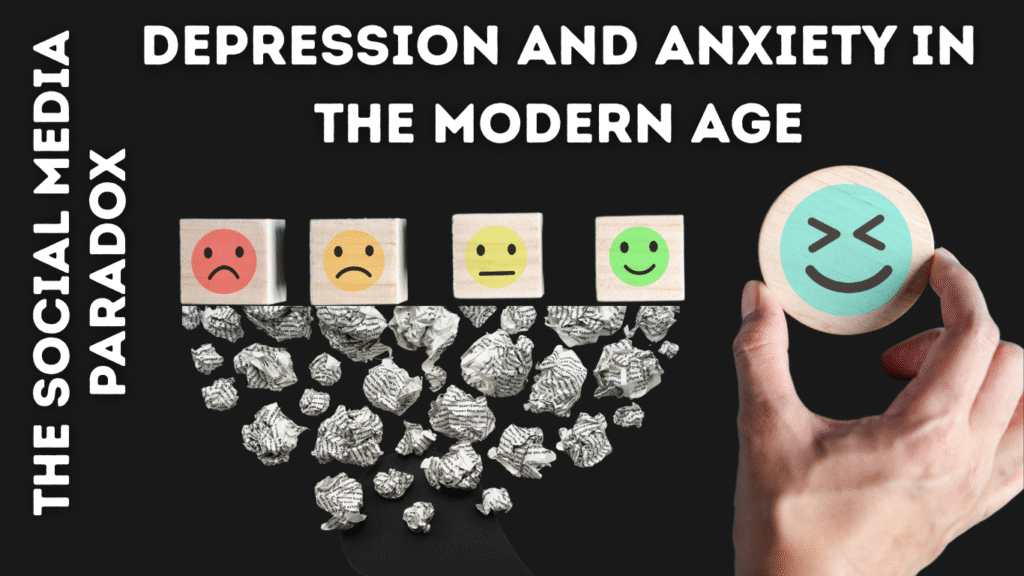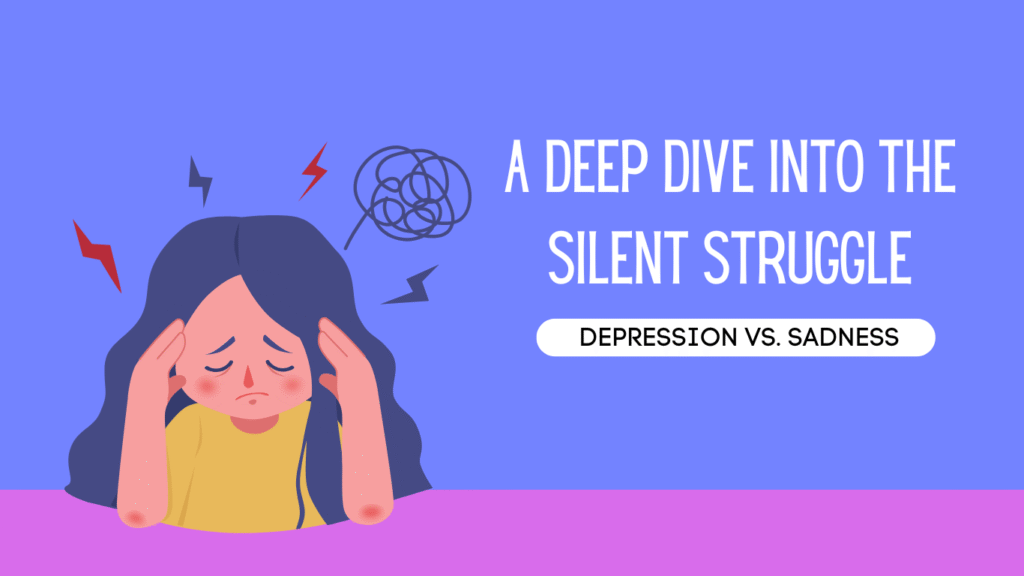Is It Depression or Just Emptiness? Understanding the Difference
Introduction
Have you been asking yourself, “Why do I feel so off lately?” Maybe you’re wondering whether you’re depressed or just emotionally empty. It’s a confusing place to be, especially when you can’t explain exactly what’s wrong.
While emotional emptiness and depression can feel similar, they’re not identical — and understanding the difference can be the first step toward healing. Let’s dive deep into what sets them apart and how to figure out what you’re really feeling.
What Is Emotional Emptiness?
Feeling Numb vs. Feeling Sad
Emotional emptiness is a sense of being disconnected — not from others, but from yourself. It’s not necessarily sadness. Instead, it’s more like a nothingness. You’re not happy, but you’re not crying either. You just… exist.
The Silence of Emotions
Imagine turning down the volume of life. You still go to work, see friends, eat meals — but everything feels dull, meaningless, and distant. That’s emotional emptiness.
What Is Depression?
The Heavy Blanket Over Life
Depression is more than just feeling down. It’s a clinical condition that affects your emotions, body, thoughts, and behaviors. It makes even simple tasks feel impossible and drains your energy completely.
Symptoms You Should Know
- Persistent sadness or hopelessness
- Loss of interest in things you used to enjoy
- Fatigue
- Sleep issues
- Changes in appetite
- Guilt or worthlessness
- Suicidal thoughts (in severe cases)
The Similarities Between Depression and Emptiness
- Lack of Motivation: Both can make you feel like doing anything is a chore.
- Detachment from Joy: Hobbies, laughter, friendships — they all seem like distant memories.
- Difficulty Connecting With Others: You might feel emotionally cut off even when physically present.
Key Differences: Depression vs. Emptiness
- Emotional Range vs. Emotional Void: Depression includes painful emotions; emptiness is an absence of emotion.
- Physical Symptoms in Depression: Fatigue, aches, insomnia, and appetite changes are common.
- Emptiness Can Exist Without Sadness: You might laugh or function socially while still feeling hollow inside.
Why You Might Confuse the Two
Overlapping Symptoms
Both conditions include disconnection, low energy, and a lack of purpose — making it hard to figure out which one you’re experiencing.
The Role of Stress and Trauma
Stress, burnout, or unresolved trauma can lead to both depression and emptiness — sometimes one leads to the other.
Causes of Depression
- Brain Chemistry: Imbalance in neurotransmitters like serotonin or dopamine.
- Genetics: A family history of depression increases your risk.
- Environment: Toxic relationships, abuse, or financial stress.
- Past Trauma: Unresolved emotional wounds often resurface as depression.
Causes of Emotional Emptiness
- Suppressed Emotions: Bottling up feelings can leave you emotionally numb.
- Emotional Neglect: Growing up without emotional support can disconnect you from your feelings.
- Chronic Stress or Burnout: Constant pressure without rest can dull your emotional range.
How to Tell What You’re Really Feeling
Self-Assessment Tips
- Am I feeling too much or nothing at all?
- Do I cry often or never at all?
- Do I experience physical symptoms?
Journaling and Emotional Tracking
Try writing down your feelings every day. Over time, patterns will emerge — either of deep sadness (depression) or emotional silence (emptiness).
Looking at the Bigger Picture
Evaluate the duration, triggers, and your life situation. Emptiness might stem from a temporary disconnection; depression often lingers longer and affects every part of your life.
When Emotional Emptiness Leads to Depression
Unchecked emotional numbness can gradually lead to depression. Over time, the isolation and lack of fulfillment can evolve into hopelessness and despair.
The Importance of Getting a Proper Diagnosis
A licensed mental health professional can help you figure out what’s going on — and more importantly, what to do about it. Never guess when it comes to your mental health.
Treatment for Depression
Therapy Options
- Cognitive Behavioral Therapy (CBT)
- Psychodynamic Therapy
- Interpersonal Therapy
Medication
Antidepressants can help regulate brain chemicals — but only under medical supervision.
Lifestyle Changes
Exercise, nutrition, sunlight, and sleep are critical pieces of the healing puzzle.
Coping with Emotional Emptiness
Mindfulness
Practices like meditation help you tune in to emotions you may have shut out.
Reconnecting with Feelings
Start small: music, art, nature. These subtle experiences can spark emotional awareness.
Emotional Awareness Practices
Label your feelings. Say them out loud. Share them. The more you express, the more connected you become.
When to Seek Help
- If you’ve felt this way for weeks or months
- If it’s interfering with your work or relationships
- If you’ve lost all sense of purpose
You don’t have to figure it out alone — help is out there, and it works.
Conclusion
Whether you’re battling depression or simply feeling empty, one thing is clear: you’re not broken, and you’re not alone. Understanding what you’re going through is the first brave step toward feeling better. Both conditions are real, valid, and treatable. You deserve a life full of connection, emotion, and meaning. And you can absolutely get there — one step at a time.
FAQs
- Can emotional emptiness turn into depression? Yes, emotional numbness can eventually lead to depression if not addressed.
- Can I feel empty but not depressed? Absolutely. Emptiness can exist without the sadness and other symptoms of depression.
- Is therapy useful for emotional emptiness? Yes, especially therapies that focus on emotional awareness and trauma recovery.
- Do antidepressants help with emotional emptiness? They may help if emptiness is tied to depression, but they’re not always the solution for numbness alone.
- How long does it take to recover? Healing varies from person to person — weeks to months — but every step forward matters.


